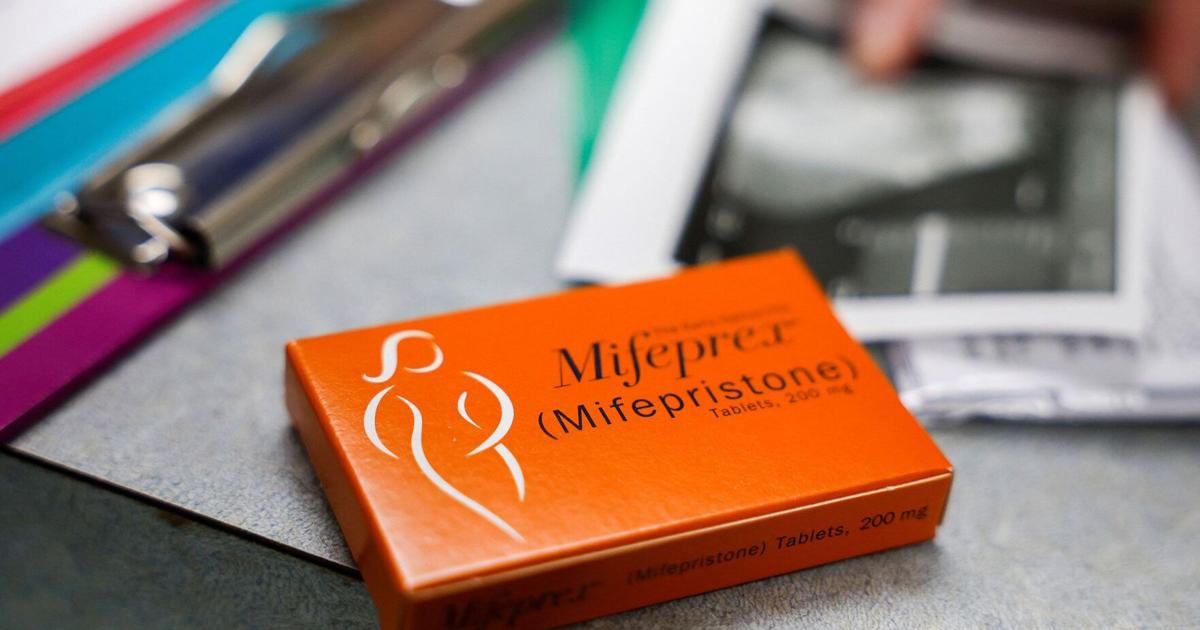The US Food and Drug Administration (FDA) and the US Department of Health and Human Services (HHS) have announced they will review the safety and efficacy of mifepristone, one of the primary drugs used for medication abortion.
In a letter dated September 19, HHS Secretary Robert F. Kennedy Jr. and FDA Commissioner Dr. Marty Makary informed 22 Republican attorneys general that the FDA is examining evidence regarding the safe dispensing of mifepristone. “This Administration will ensure that women’s health is properly protected by thoroughly investigating the circumstances under which mifepristone can be safely dispensed,” they wrote. They added that the FDA would conduct its own review of real-world data and evidence related to the drug’s safety and efficacy.
This move has raised concerns among abortion rights advocates, who worry that the federal government might impose new restrictions on access to medication abortion. Medication abortion access has expanded significantly in recent years, particularly through telehealth services.
Earlier this month, Kennedy told senators that the FDA is actively collecting new data for a safety review of mifepristone. He mentioned that “those studies are progressing and that they’re ongoing.” During a Senate Finance Committee hearing, Kennedy claimed the Biden administration had “twisted the data” on mifepristone to “bury one of the safety signals,” though he did not specify the nature of this supposed safety issue. “We’re getting data in all the time — new data that we’re reviewing,” he explained.
The Republican attorneys general referenced a report from the Ethics and Public Policy Center—a conservative think tank opposing what it calls the “extreme progressive agenda”—as evidence that mifepristone poses risks and needs tighter oversight. In response, Kennedy and Makary acknowledged that the report highlighted “potential dangers that may attend offering mifepristone without sufficient medical support or supervision.”
However, many experts have criticized the report, labeling it “junk science.” The report has not undergone peer review or been published in any medical journal. Dr. Ushma Upadhyay, associate professor in obstetrics, gynecology, and reproductive science at the University of California, San Francisco, identified significant flaws in the report in a comprehensive 10-point review. She pointed out that the report lacks transparency, providing little information about the data sources. Furthermore, it overstated the risks by counting any emergency room visit—including those that required no treatment—as a serious adverse event. Other research suggests that approximately half of abortion-related emergency department visits are for observation only.
The Society of Family Planning, a nonprofit organization dedicated to abortion and contraception research, has urged the FDA to dismiss the report due to its lack of scientific rigor. “In short, this paper is not a methodologically rigorous, evidence-based resource, and does not warrant consideration, particularly in scientific spaces,” the group stated in a letter to Dr. Makary.
Mifepristone is typically used in combination with misoprostol for medication abortion in the United States. The FDA approved mifepristone in 2000, and it has since been consistently demonstrated to be safe and effective for terminating pregnancies up to 10 weeks gestation.
Clinical studies and decades of real-world use have established its safety profile. Since its approval, there have been approximately five deaths associated with mifepristone per one million users—an extremely low rate of 0.0005%. Studies show that mifepristone’s safety is comparable to that of common over-the-counter pain relievers such as ibuprofen and acetaminophen.
Major medical organizations, including the American College of Obstetricians and Gynecologists, have repeatedly advocated for increased accessibility to mifepristone. During the COVID-19 pandemic, the Biden administration permitted certified providers to prescribe mifepristone via telehealth and ship the medication by mail. This policy significantly expanded access, especially in rural areas with limited abortion clinic availability.
Despite this, anti-abortion advocates argue that the drug is unsafe and that the FDA did not adequately study it. Republican officials have persistently called for the government to rescind the telemedicine policy and restrict mifepristone distribution to in-person visits only.
In June 2024, the US Supreme Court declined to block the availability of mifepristone but left open the possibility of future regulatory changes. This decision has placed additional scrutiny on federal agencies such as the FDA.
According to the Guttmacher Institute, a research organization that supports abortion rights, there were more than 1 million abortions in the US in 2024 for the second consecutive year. Since the Supreme Court’s June 2022 Dobbs decision, which revoked the federal right to abortion, 20 states have enacted bans or severely restricted abortion access, while some have introduced new protections for abortion care.
The rise in access to medication abortion through telehealth has contributed to the increase in abortion numbers. Approximately 14% of abortions in 2024 were provided by online-only clinics, a rise from 10% in 2023—an increase of about 40,000 abortions.
—
Stay informed and connected — subscribe to The Philadelphia Tribune NOW!
—
**Community Guidelines:**
– Keep it Clean: Avoid obscene, vulgar, lewd, racist, or sexually explicit language.
– Please Turn Off Your Caps Lock.
– Don’t Threaten: Threats of harm will not be tolerated.
– Be Truthful: Do not knowingly spread false information.
– Be Nice: No racism, sexism, or degrading -isms allowed.
– Be Proactive: Use the ‘Report’ link to notify us of abusive content.
– Share Your Story: We welcome eyewitness accounts and historical perspectives.
—
**Job Hunting Insight:**
Has job hunting as a Black Gen Zer come with more halts and frustration than expected? You’re not alone. Unemployment rates for Black/African American youth in Philadelphia remain higher than other racial and age groups.
https://www.phillytrib.com/news/health/federal-agencies-are-studying-safety-of-abortion-drug-mifepristone-driving-new-concerns-about-limits-on/article_f54ccc9e-7012-4a1d-ae30-ab1af77b13ae.html
